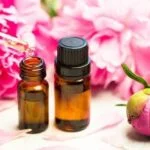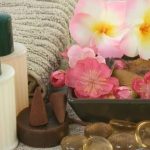Aromatherapy is a holistic healing treatment that uses natural plant extracts to promote health and well-being. It has been used for centuries in various cultures for its therapeutic benefits, including stress reduction, relaxation, and improved mental clarity. However, as aromatherapy continues to gain popularity, concerns have arisen regarding its potential impact on skin health, particularly in relation to acne.
As we delve into the world of aromatherapy and its benefits, it becomes essential to understand the factors that contribute to the development of acne. Acne is a common skin condition that occurs when hair follicles become clogged with oil and dead skin cells.
This leads to the formation of blackheads, whiteheads, pimples, and nodules on the face, neck, chest, back, and shoulders. While various factors can trigger acne flare-ups, such as hormonal changes, genetics, and certain medications, there is growing interest in exploring whether aromatherapy plays a role in aggravating or alleviating this skin concern.
In this article, we will explore the potential link between aromatherapy and acne. We will delve into the impact of essential oils on skin health and discuss research studies that have investigated the relationship between aromatherapy and acne.
Additionally, we will examine the potential risks and side effects of using aromatherapy for acne-prone skin while providing expert tips and recommendations for safely incorporating aromatherapy into acne management. By providing evidence-based information on this topic, our aim is to empower individuals to make informed decisions about using aromatherapy for their acne care routine.
Understanding Acne
What Is Acne?
Acne is a common skin condition that occurs when hair follicles become clogged with oil and dead skin cells, leading to the formation of pimples, blackheads, and cysts. It can affect people of all ages and is often attributed to hormonal imbalances, genetics, and lifestyle factors. While acne is not directly caused by poor hygiene or specific foods, certain triggers can exacerbate the condition.
Causes and Triggers of Acne
Several factors contribute to the development of acne, including excessive production of oil (sebum), bacteria on the skin, hormonal changes, and inflammation. In addition to these internal causes, external triggers such as stress, diet, and certain skincare products can also play a role in worsening acne. Understanding these causes and triggers is crucial in managing the condition effectively.
The Role of Aromatherapy in Acne Development
Aromatherapy involves using essential oils derived from plants to promote physical and psychological well-being. While some essential oils are known for their antibacterial and anti-inflammatory properties, there is limited scientific evidence supporting their effectiveness in treating acne. In fact, some essential oils may even exacerbate acne symptoms due to their comedogenic nature or potential irritant effects on the skin. As such, it’s important for individuals with acne-prone skin to approach aromatherapy with caution.
The Link Between Aromatherapy and Acne
Aromatherapy is known for its potential to improve overall well-being and promote relaxation. However, it is important to consider the potential effects of aromatherapy on skin health, especially for individuals with acne-prone skin. While some essential oils may offer benefits for managing acne, others could potentially exacerbate the condition. Understanding the link between aromatherapy and acne is essential for making informed decisions about skincare.
To begin, let’s explore how aromatherapy can impact acne and skin health:
- Some essential oils possess antibacterial and anti-inflammatory properties that can help manage acne breakouts.
- Aromatherapy can also promote relaxation and stress reduction, which may indirectly improve acne symptoms related to stress or hormone fluctuations.
- On the other hand, certain essential oils can be comedogenic, meaning they have the potential to clog pores and worsen acne.
When considering aromatherapy for acne management, it is crucial to understand which essential oils may be beneficial and which ones should be used cautiously. In addition, it is important to recognize potential risks and side effects associated with aromatherapy for acne-prone skin.
It’s also vital to note that individual responses to aromatherapy can vary, so what works for one person may not work for another. Therefore, consulting with a skincare professional or dermatologist before incorporating aromatherapy into an acne treatment plan is advisable. By approaching aromatherapy with knowledge and caution, individuals can make informed decisions about how to safely use this practice for managing acne.
Essential Oils and Their Impact on Skin Health
Aromatherapy involves the use of essential oils to promote physical and psychological well-being. Essential oils are known for their various benefits, including their potential impact on skin health. Many essential oils have been used for centuries in skincare routines due to their antibacterial, anti-inflammatory, and antioxidant properties. Some of the most popular essential oils for skincare include tea tree oil, lavender oil, rosehip oil, and chamomile oil.
When it comes to acne management, essential oils can play a significant role in promoting overall skin health. For example, tea tree oil has been widely studied for its effectiveness in treating acne due to its powerful antimicrobial properties. It can help reduce the bacteria that cause acne and soothe inflammation. Meanwhile, lavender oil is known for its calming effects on the skin and may help reduce redness and irritation associated with acne breakouts.
However, while essential oils can offer benefits for skin health, it’s important to note that they are highly concentrated plant extracts. As such, they should be used with caution, especially for individuals with acne-prone skin. The improper use of essential oils can lead to skin irritation or allergic reactions. Therefore, it’s essential to dilute them properly before application and perform a patch test before using them regularly.
| Essential Oils | Impact on Skin Health |
|---|---|
| Tea Tree Oil | Antimicrobial properties can reduce bacteria that cause acne and soothe inflammation |
| Lavender Oil | Calming effects on the skin may reduce redness and irritation associated with acne breakouts |
Research Studies on Aromatherapy and Acne
When it comes to the potential effects of aromatherapy on acne, there has been a growing body of research that suggests certain essential oils may offer benefits for managing acne-prone skin. Here are some key findings from recent studies:
- A study published in the Journal of Cosmetic Dermatology found that tea tree oil, a popular essential oil used in aromatherapy, demonstrated antimicrobial and anti-inflammatory properties that can be effective in reducing acne lesions. The study concluded that incorporating tea tree oil into skincare products may be beneficial for individuals with acne.
- Another study in the International Journal of Molecular Sciences investigated the potential benefits of lavender essential oil for acne management. The findings suggested that lavender oil exhibited anti-inflammatory and antioxidant effects, making it a promising option for addressing inflammatory acne.
- Research published in the Journal of Ethnopharmacology explored the use of rosemary essential oil for acne treatment. The study revealed that rosemary oil displayed antibacterial activity against Propionibacterium acnes, a bacteria commonly associated with acne development.
It is important to note that while these studies suggest potential benefits of aromatherapy for acne, more research is needed to fully understand the mechanisms and long-term effects of essential oils on skin health. Additionally, individual responses to aromatherapy can vary, so it’s crucial to consult with a dermatologist or skincare professional before incorporating any new treatments into an acne management routine.
Potential Risks and Side Effects of Aromatherapy for Acne-Prone Skin
When it comes to using aromatherapy for acne-prone skin, there are potential risks and side effects that individuals should be aware of. While aromatherapy is often touted for its numerous benefits, it’s important to understand how certain essential oils may interact with acne-prone skin and potentially exacerbate existing conditions.
One of the potential risks of using essential oils in aromatherapy for acne-prone skin is the possibility of clogged pores. Some essential oils are comedogenic, meaning they have a tendency to clog the pores and can lead to the development or worsening of acne. This is particularly true for individuals with sensitive or reactive skin, as certain essential oils may cause irritation or breakouts.
In addition, some essential oils used in aromatherapy have the potential to cause an allergic reaction in individuals with sensitive skin. This can manifest as redness, itching, or swelling, and may worsen existing acne symptoms. It’s important to perform a patch test before using any new essential oil on your skin to ensure that you don’t have an adverse reaction.
Furthermore, certain essential oils used in aromatherapy may increase photosensitivity, making the skin more susceptible to sun damage. This can be particularly problematic for individuals with acne-prone skin since sun exposure can aggravate existing acne and lead to post-inflammatory hyperpigmentation. It’s crucial to be mindful of these potential risks and side effects when incorporating aromatherapy into your acne management routine.
How to Safely Use Aromatherapy for Acne Management
Aromatherapy can be a beneficial and natural way to manage acne and improve overall skin health. However, it is important to use essential oils safely to avoid any potential risks or side effects. Here are some expert tips on how to safely incorporate aromatherapy into your acne management routine.
Choose the Right Essential Oils
When using aromatherapy for acne management, it is essential to choose the right essential oils that are known for their antibacterial and anti-inflammatory properties. Some of the best essential oils for acne-prone skin include tea tree oil, lavender oil, and rosemary oil. These oils can help reduce inflammation, kill acne-causing bacteria, and promote healing.
Dilute Essential Oils Properly
Before applying essential oils to the skin, it is crucial to dilute them properly with a carrier oil such as jojoba oil or coconut oil. Undiluted essential oils can be too potent and may cause irritation or allergic reactions, especially for those with sensitive or acne-prone skin. The general rule of thumb is to dilute 1-2 drops of essential oil in 1 tablespoon of carrier oil.
Perform a Patch Test
Before using any new essential oil on your face or body, it is recommended to perform a patch test on a small area of skin first. This will help you determine if you have any adverse reactions to the oil before applying it more extensively. Apply a small amount of diluted essential oil to your inner forearm and wait 24 hours to see if there are any signs of redness, itching, or irritation.
By following these guidelines, individuals can safely incorporate aromatherapy into their acne management routine without causing further irritation or breakouts. It is always best to consult with a dermatologist or skincare professional before starting any new treatment regimen, especially for those with existing acne conditions.
Expert Tips and Recommendations for Aromatherapy and Acne Treatment
As with any skincare treatment, it is important to seek expert tips and recommendations when using aromatherapy for acne treatment. Aromatherapy can be a great addition to your skincare routine, but it is crucial to use the right essential oils and follow proper guidelines to avoid any adverse effects on your skin.
One expert tip for using aromatherapy for acne treatment is to dilute essential oils properly before applying them topically. Essential oils are highly concentrated and can be irritating to the skin if not diluted correctly. It is recommended to mix a few drops of essential oil with a carrier oil, such as jojoba or coconut oil, before applying it to the skin.
Another important recommendation from experts is to perform a patch test before using any new essential oil on your skin. This involves applying a small amount of diluted essential oil to a discreet area of the skin and monitoring for any adverse reactions over 24 hours. This can help determine if you have any sensitivities or allergies to specific essential oils.
Lastly, experts advise against using certain essential oils on acne-prone skin, as they may exacerbate breakouts. Oils high in oleic acid, such as olive oil and marula oil, are generally not recommended for acne-prone skin due to their potential to clog pores. Instead, opt for non-comedogenic oils like argan or rosehip seed oil that are less likely to cause breakouts.
| Expert Tips | Recommendations |
|---|---|
| Dilute essential oils properly before topical application | Use carrier oils like jojoba or coconut oil |
| Perform a patch test before using new essential oils | Monitor for adverse reactions over 24 hours |
| Avoid using high-oleic acid oils on acne-prone skin | Opt for non-comedogenic oils like argan or rosehip seed oil |
Conclusion
In conclusion, when it comes to using aromatherapy for acne care, it is important to make informed decisions. Aromatherapy can offer potential benefits for managing acne, such as reducing inflammation, soothing the skin, and promoting relaxation. However, it is crucial to understand the potential risks and side effects associated with using essential oils on acne-prone skin.
Research studies have shown conflicting results regarding the impact of aromatherapy on acne. While some studies suggest that certain essential oils may have antibacterial and anti-inflammatory properties that can help improve acne symptoms, others indicate that some essential oils may exacerbate acne or cause skin irritation.
When considering aromatherapy for acne management, individuals should take into account their skin type, any allergies or sensitivities they may have, and consult with a skincare professional or dermatologist. It is also important to perform a patch test before using any new essential oils topically to ensure they do not trigger breakouts or adverse reactions.
Ultimately, making informed decisions about using aromatherapy for acne care involves understanding the potential benefits and risks, seeking expert advice when needed, and proceeding with caution in order to find the most suitable approach for one’s individual skincare needs.
Frequently Asked Questions
Can Essential Oils Cause Acne?
Essential oils can potentially cause acne in some individuals, especially if they are not properly diluted or if the person has sensitive skin. Some essential oils are comedogenic, meaning they can clog pores and lead to breakouts.
Is Aromatherapy Bad for Skin?
Aromatherapy is not inherently bad for the skin, but certain essential oils used in aromatherapy can cause adverse reactions in some people. It’s important to do a patch test before using any new essential oil on your skin and to avoid applying undiluted essential oils directly to the skin.
What Are the Bad Side Effects of Aromatherapy?
Some potential bad side effects of aromatherapy include skin irritation, allergic reactions, photosensitivity (increased sensitivity to sunlight), and respiratory issues in some cases. It’s crucial to be aware of these potential side effects and to use essential oils cautiously and responsibly.

Are you looking for a natural way to improve your health and wellbeing?
If so, aromatherapy may be the answer for you.




